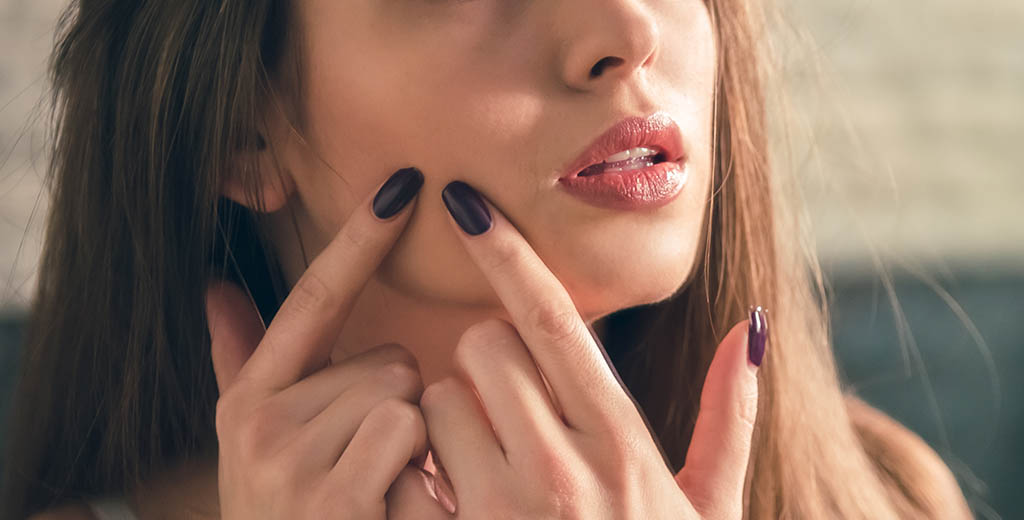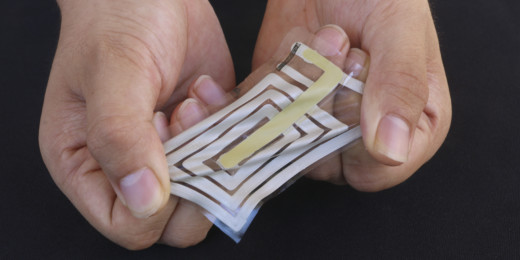With each year that brings me closer to a certain milestone birthday -- hint, rhymes with "dirty" -- I find myself increasingly investigating the skin care industry's latest potions of youth.
Among the myriad serums that promise plumping, moisturizing, collagen-boosting and dewy flawless skin, one standby always seems to reign: retinol.
A derivative of vitamin A, retinol has been around for decades and has been a go-to skin care solution for dermatologists -- some might even say the gold standard. It's used for all sorts of skin remedies, including fighting acne, reducing wrinkles, reversing sun damage, shrinking pores -- all the good stuff.
While I'm all for a magic youth facial serum, I'm also skeptical about the hype -- and I've heard some not-so-flattering things about retinol, including that it can make your skin itchy and dry, or even make it more susceptible to sun damage and skin cancer. So I asked Stanford dermatologist Zakia Rahman, MD, to weigh in.
What is retinol? Is it the same thing as a retinoid or vitamin A?
Retinol and retinoids aren't exactly the same thing, but they are both chemical derivatives of vitamin A, a central vitamin needed for many functions of the body. Both have utility in skin care, particularly for reducing wrinkles, improving collagen production and treating acne, among other functions.
Retinols and retinoids are born of the same vitamin; but retinoids are more potent and are classified as a pharmaceutical, meaning you need a prescription to use a retinoid cream. Although recently, an over the counter retinoid (adapalene 0.1% gel) has become available without a prescription. Retinols have a naturally weaker affect and are found in over-the-counter creams broadly known as cosmeceuticals.
Retinols can still be effective, but the results won't be as stark and will take longer to appear. That said, they're very accessible, and you don't need a prescription. Often, retinols are a good place to start for people who are just looking to try it out. Personally, I'm a huge fan of retinoids and likely the majority of dermatologists who you speak to are on some type of topical retinoid regimen.
How do retinols/retinoids work?
Retinoids and retinols change how a cell functions, specifically the speed at which a cell turns over, or divides, to create new cells. Retinoids encourage skin cells to divide more rapidly, building up the protective top layer of skin, the epidermis. As we age, there is a decline in the natural production of collagen and elastic fibers that give your skin lift and bounce in the epidermis. That makes our skin more frail and thin, which leads to wrinkles, sun spots and other types of visible skin damage.
Retinoids help mitigate those issues in a variety of ways. They thicken the epidermis through increased cell proliferation at the top level. They increase the production of natural chemicals (such as hyaluronic acid) in your skin that keep it plump and moist. They stimulate collagen production and inhibit the breakdown of collagen that already exists. They also block several inflammatory pathways that exacerbate pimples and acne.
Retinoids have so many benefits. Are there downsides?
There are definitely side effects with both retinols and retinoids, but I want to emphasize that they're temporary, lasting around three to four weeks. The most common side effects I see with patients are redness, dry and scaly skin and itching or burning. In more extreme cases, people who already have naturally dry skin can sometimes get nosebleeds and cracking at the sides of the mouth.
Retinoids also initially increase the skin's sensitivity to ultraviolet light. But after a few months of regular use, that sensitivity dissipates. So all you have to do is make sure you're wearing sunscreen every day, which we should all be doing anyway.
These changes can be fairly mild, or they verge on intolerable. But there are tricks that can mitigate irritation. For instance, when first starting a retinol or retinoid, I tell patients to start with a low dose once a week, and then slowly work up to twice a week and so on. Another regimen I like is to start using the retinoid/retinol daily, but apply it with a moisturizer (such as one based in hyaluronic acid or dimethicone). In a few weeks, the peeling effects will go away, but all the beneficial effects will remain.
I have a regimen of things that I use and recommend to patients incorporating retinoids into their skin care routine, including hyaluronic acid and rich moisturizers, sometimes even vaseline.
The good news is, eventually your skin adjusts and you can increase the strength of the treatment and the frequency. After that, it's smooth sailing.
Image by georgerudy






